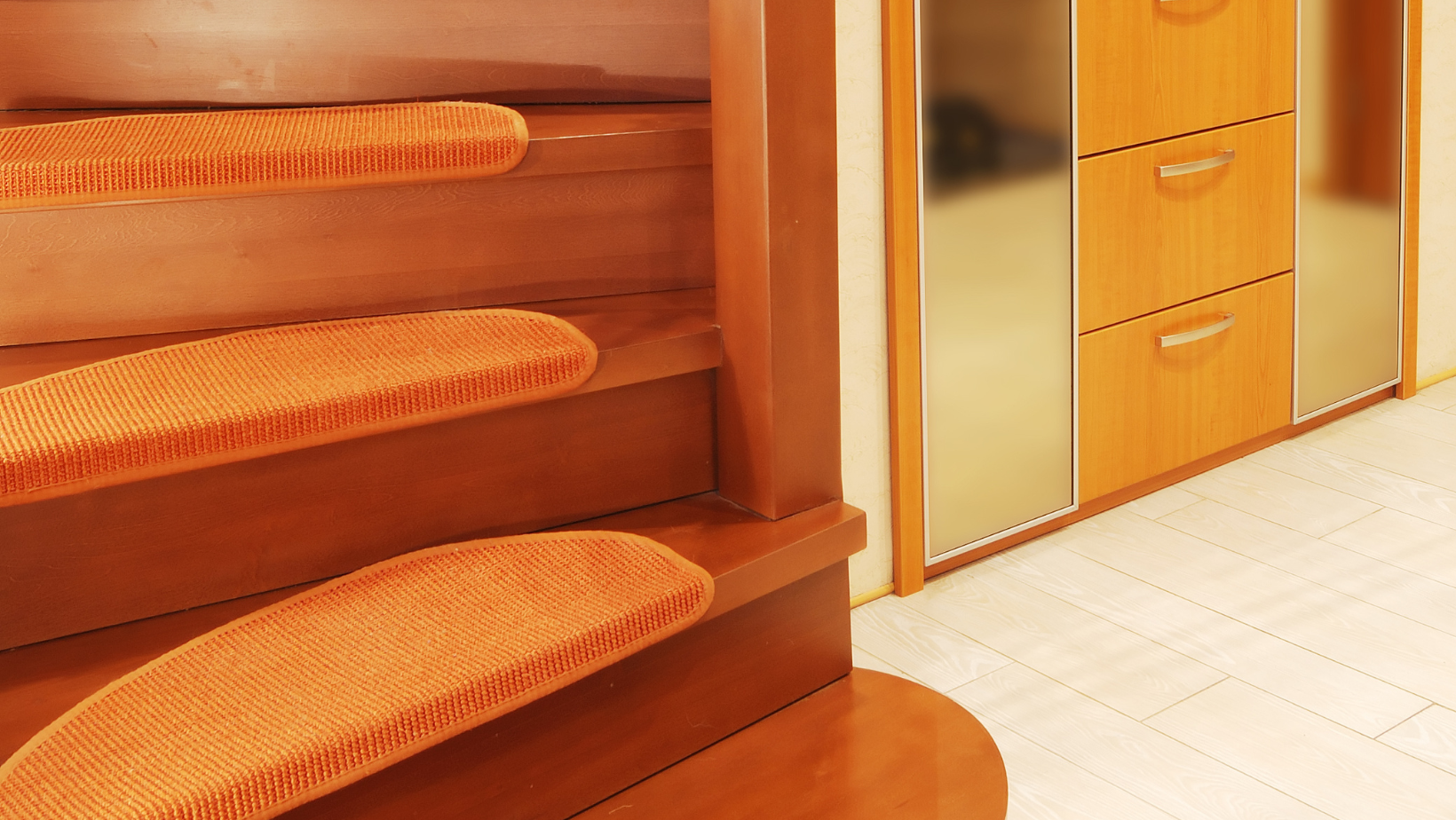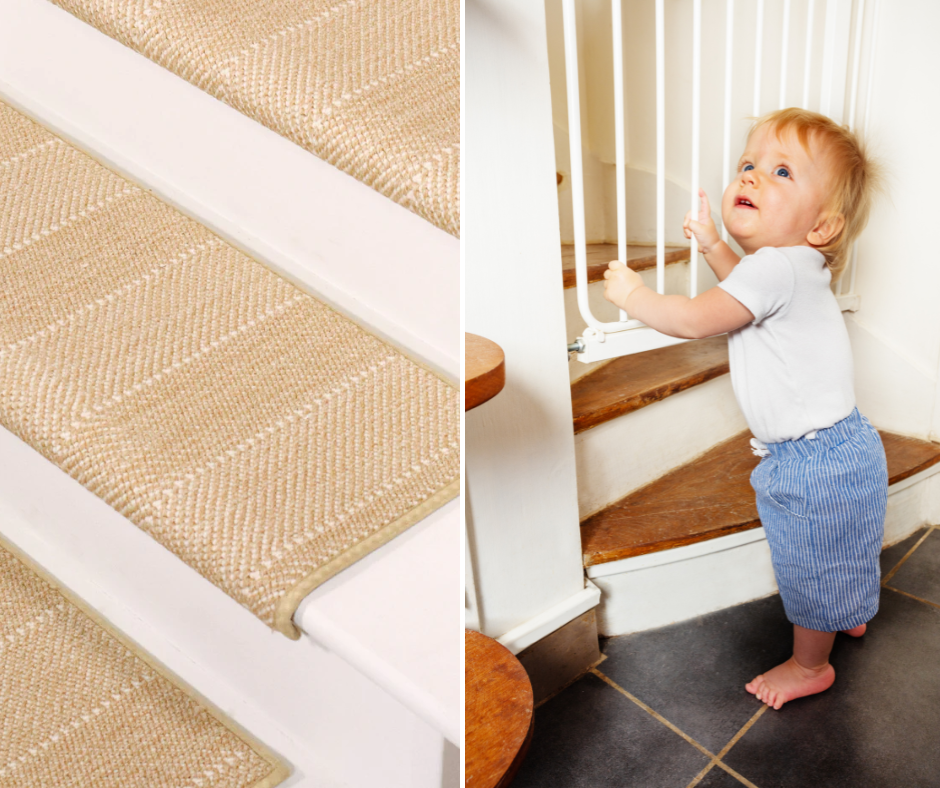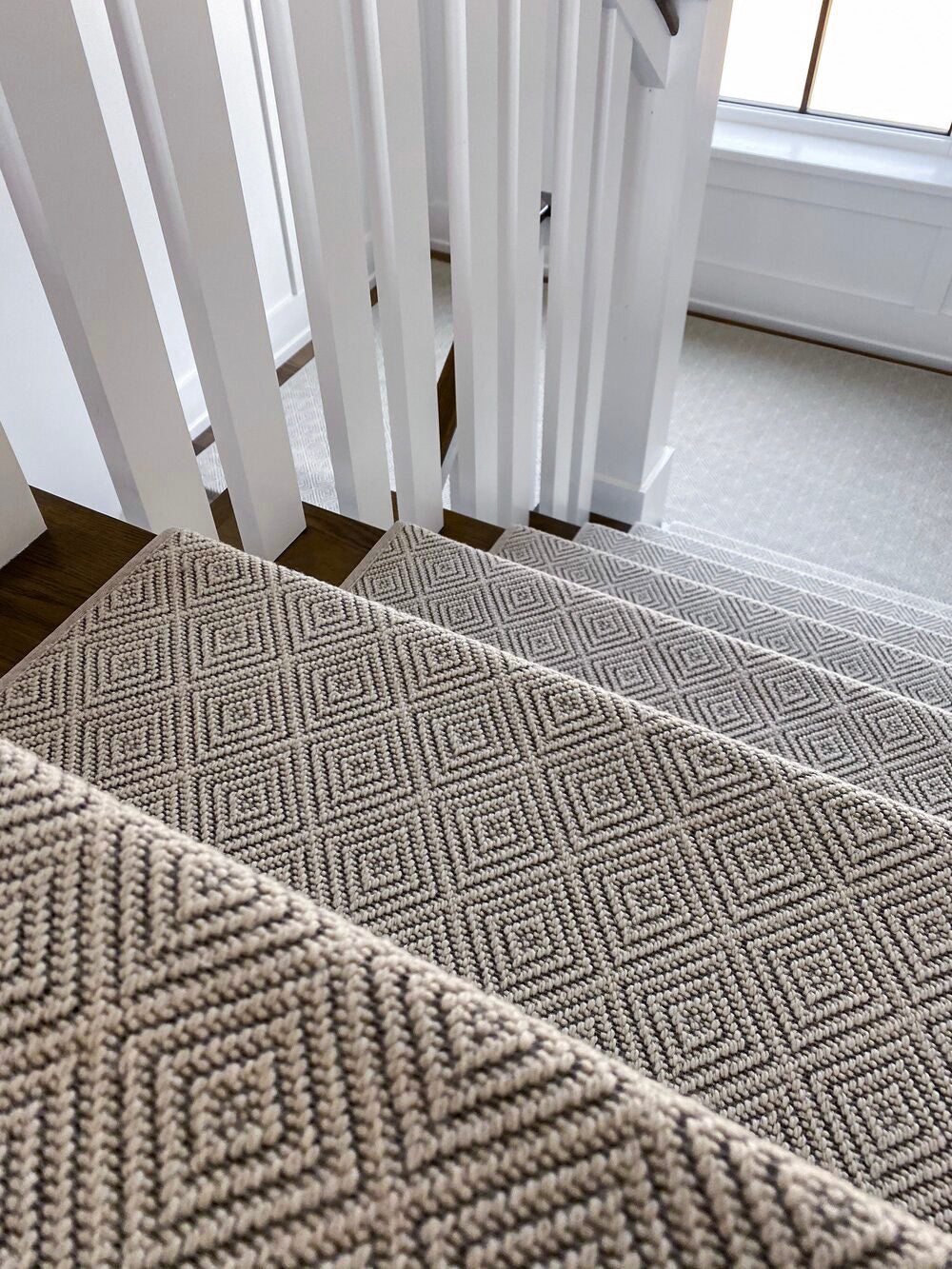Dogs, particularly older ones or those with joint issues, may struggle to get traction on smooth wood, leading to slips, falls, and potential injuries.
Are stairs bad for dogs?
If you have wooden stairs, they can be especially risky for pets due to their slippery surface.
Stair grips for wooden stairs provide an easy, effective solution by adding extra traction and cushioning without compromising the beauty of your staircase.
Options like carpet stair treads, rubber grips, and non-slip adhesive strips help prevent accidents while blending seamlessly with your home’s design.
Benefits of Stairs for Dogs
Stairs aren't always bad—they offer benefits like exercise, mental stimulation, and better access to different areas of the home.
For younger, healthy dogs, stairs can provide an added layer of physical activity and mental challenge.
Many dogs enjoy the freedom of moving between levels in the home, and stairs can help them stay active indoors.
However, knowing when stairs are beneficial versus when they pose a risk is key to your dog’s long-term health.
Exercise and Physical Health
Climbing stairs is a great workout for dogs, especially those without a backyard or space to run.
It strengthens muscles, improves cardiovascular health, and helps maintain a healthy weight.
Regular stair use can keep your dog active and engaged, which is especially helpful for high-energy breeds.
Dogs that struggle with weight management may find that stairs provide an additional way to burn calories throughout the day.
However, it’s important to monitor how they move. If they struggle, limp, or hesitate, stairs might be doing more harm than good.
Mental Stimulation and Training Opportunities
Stairs challenge dogs to think and navigate their environment.
Learning to climb stairs improves balance, coordination, and confidence.
Stairs also provide a great tool for obedience and agility training, especially when paired with rewards and encouragement.
For young puppies, stair training can build problem-solving skills and help them develop body awareness.
For older dogs, even slow and careful stair use keeps their minds engaged and prevents cognitive decline.
Access to Different Areas of the Home
For dogs with limited mobility or curiosity, stairs allow them to explore different parts of the home.
Being able to join their owners on different floors can reduce anxiety and make them feel included.
This is particularly important for dogs that suffer from separation anxiety, as being left alone on one floor can cause distress.
In multi-pet households, stairs allow dogs to find quiet areas or follow their routine without restriction.
If your dog frequently wants access to a higher or lower floor, ensuring the stairs are safe becomes even more important.
Are Stairs Bad for Dogs?
While stairs offer benefits, they also come with potential drawbacks.
If you've ever owned a dog who struggled with stairs, you might wonder, "Are stairs really safe for dogs?"
Some dogs may use stairs every day without issues, while others develop pain, fear, or injuries over time.
It’s important to watch for signs of discomfort, hesitation, or behavioral changes that could indicate stair-related stress.
By recognizing these signs early, you can prevent long-term damage and keep your dog safe.
Joint and Muscle Strain
Stairs put pressure on a dog’s joints, especially in older dogs or those with arthritis.
Jumping or running up and down stairs can lead to long-term joint problems, causing pain and reduced mobility.
Dogs with hip dysplasia or other joint issues may struggle even more, as their bones and ligaments are already weakened.
Over time, excessive stair use can contribute to degenerative joint diseases, making movement painful.
If your dog hesitates, limps, or shows stiffness after using stairs, it may be time to reevaluate their access to them.
Slippery Surfaces and Uneven Steps
Slippery stairs increase the risk of falls and injuries, especially for older dogs or puppies.
Hardwood or tile stairs offer little traction, making it difficult for dogs to climb safely.
If the stairs are uneven or too steep, your dog may hesitate or become scared, leading to stress and avoidance behaviors.
Adding non-slip surfaces like carpet stair treads or rubber grips can significantly improve safety.
Dogs with long nails or furry paws may struggle even more on slick surfaces, making regular grooming another important factor in stair safety.
Stair Grips for Wooden Stairs
Wooden stairs add a classic, elegant touch to any home, but they can also be slippery and dangerous for both pets and people.
Dogs, especially those with mobility issues, often struggle to get traction on smooth wooden surfaces, increasing the risk of slips and falls.
Stair grips for wooden stairs provide an easy, effective solution by adding extra traction and cushioning without compromising the beauty of your staircase.
Options like carpet stair treads, rubber grips, and non-slip adhesive strips help prevent accidents while blending seamlessly with your home’s design.
Are Stairs Bad for Dogs?
Most dogs can use stairs safely, but it depends on their size, age, and physical health.
Before letting your dog use stairs, consider:
-
What makes stairs "safe" for my dog?
-
How many stairs could they fall down if they slip?
-
What changes can I make to improve stair safety?
If the stairs aren't safe, it's essential to make adjustments, like adding traction or restricting access.
Assessing how your dog navigates the stairs daily can help you determine whether changes are needed.
Stepping It Up
If your dog struggles with stairs or you want to make your home safer and more stylish, Oak Valley Designs has the perfect solution.
Our high-quality carpet stair treads, landings, and hallway runners provide the traction and comfort your pet needs while enhancing the overall look of your staircase.
With a range of designs and materials, you can find the ideal fit for your home, whether you need extra grip for safety or a polished, cohesive look.
Our products are crafted to be durable, easy to install, and designed to blend seamlessly with your existing decor.
Let us help you create a safer, more inviting home for you and your pets.
Visit our website to explore our collection, or reach out to us for personalized recommendations.
-
Website: https://oakvalleydesigns.com/
-
Phone: 706.331.0315
-
Email: info@oakvalleydesigns.com
-
Address: 30 River Ct SW Bldg E, Cartersville, GA 30120




